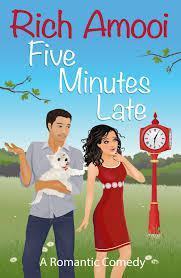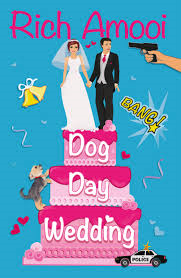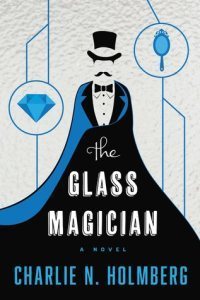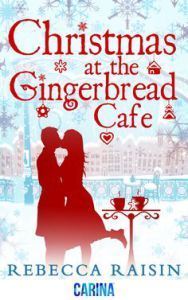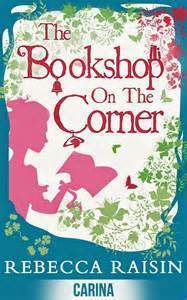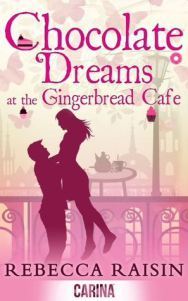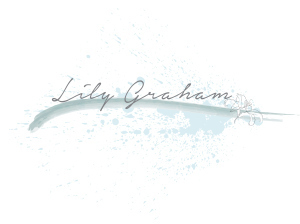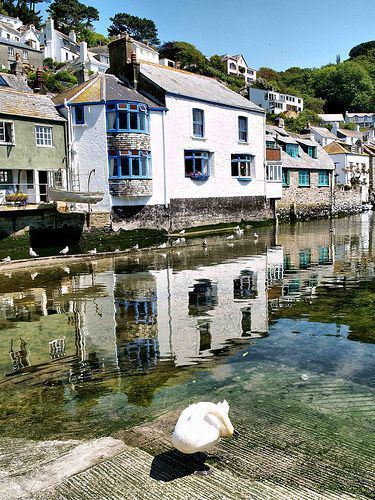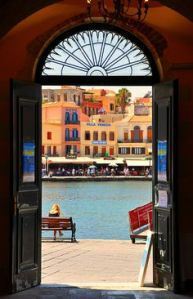Lily Graham's Blog, page 8
February 19, 2015
Quirky, romantic comedies from a guy’s perspective? My interview with Rich Amooi
T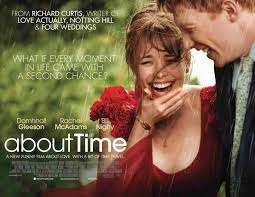 here’s something really wonderful about men who write romantic comedies. It always brings to mind Richard Curtis for me. Who as far as I’m concerned just makes the world a better place with films like Love Actually, Four Weddings & A Funeral, and my absolute favourite About Time – seriously if you haven’t seen the latter do yourself a favour this weekend. Bill Nighy, Rachel McAdams, the adorable Domhnall Gleeson, time travel, Cornwall. I swear it’s this film that was one of the reasons I fell so in love with the area and wrote The Postcard.
here’s something really wonderful about men who write romantic comedies. It always brings to mind Richard Curtis for me. Who as far as I’m concerned just makes the world a better place with films like Love Actually, Four Weddings & A Funeral, and my absolute favourite About Time – seriously if you haven’t seen the latter do yourself a favour this weekend. Bill Nighy, Rachel McAdams, the adorable Domhnall Gleeson, time travel, Cornwall. I swear it’s this film that was one of the reasons I fell so in love with the area and wrote The Postcard.
Another wonderful guy writing romantic comedies is Rich Amooi, who I’m thrilled to be interviewing on the blog today. Rich is the author of Five Minutes Late, Dog Day Wedding which has just been released, and Kissing Frogs which will be available in April.
Welcome Rich! Tell us a little about yourself?
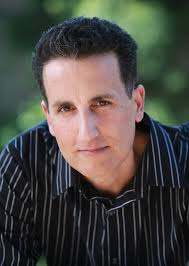 Thanks! I’m a former Silicon Valley radio personality and wedding DJ who is fortunate enough to be writing romantic comedies full-time. I’m happily married to a kiss monster (seriously) and have a hairy golden retriever/lab mix that likes to eat carrots, tuna, and Manchego cheese imported from Spain.
Thanks! I’m a former Silicon Valley radio personality and wedding DJ who is fortunate enough to be writing romantic comedies full-time. I’m happily married to a kiss monster (seriously) and have a hairy golden retriever/lab mix that likes to eat carrots, tuna, and Manchego cheese imported from Spain.
Now tell us something about yourself that someone would be surprised about, grin.
I had a period in my life where I was single and didn’t date for over thirteen years. Then I met a woman at Starbucks (my future wife) and moved in with her two months later.
Did you always want to be a writer?
No. My first passion was radio. After I graduated from high school, I took a broadcasting course and eight months later I graduated at the top of my class. I got my first job offer a week later and ended working “on the air” in Silicon Valley for over thirty years.
It’s so refreshing to see a man who enjoys writing and reading romantic comedy, what prompted you to write in the genre?
I have always been a HUGE fan of romantic comedies at the movies (ever since When Harry Met Sally) so it seemed like a logical choice for me to write them.
Your latest book Dog Day Wedding sounds really funny, what inspired you to write it?
Dog Day Wedding actually started out as a short story that I wrote in a creative writing class at Stanford. The title is based on the 1975 Al Pacino movie, Dog Day Afternoon. In the movie, Pacino robs a bank and ends up taking everyone hostage. My story is a little lighter since it’s a rom-com. The big finale of the story is a wedding with hostages. Don’t worry… nobody dies and there’s plenty of red velvet cake for everyone!
Do you ever miss your characters when you finish a novel?
Oddly enough, no. When I finish a novel, I am so motivated to write another one that I just move on. But the characters will always have a special place in my heart! (and on my shelf)
Do you have a favourite leading man or lady from your novels. Or would that be like having a favourite child?
No favourites. And I love the secondary characters just as much. Especially since I can get them to say some crazy things I wouldn’t dream of having the leading characters say.
What is your writing process – do you write every day?
Where do you write? I write at home most of the time. Occasionally I will get together with a group of writers at a local coffee shop to write for a few hours. Although I do want to write every day, it doesn’t always end up happening. But I do work on some part of the business every day, whether it is writing, marketing, updating the website, etc.
What’s the biggest lessons you’ve learnt in your career as a author?
It takes discipline to sit down and write consistently with all of the distractions.
30 second Rich
Champagne and canapés or tea and scones? Since I don’t see donuts as an option, I will choose tea and scones.
Sea or country? Sea (although I do love the country).
Dogs or cats? Hmm. This is a tough one too. I have always been a cat person but got a dog as part of the package deal when I met my wife. I love the dog a lot but I do miss having a cat.
Plot or free form. Another tough choice! Are you doing this on purpose? I’m kind of in the middle on this one. I do a very loose plot—just one sentence for each scene. For example.
Scene 1: Giovanni gets jilted at the altar
Scene 2: Giovanni tries to set his ex fiancée’s clothes on fire.
Scene 3: Natalie stops Giovanni from setting the clothes on fire and they have a connection.
Brilliant, thanks so much Rich!
If you want to find out more about Rich’s book visit his website here, or follow him on Twitter here.
Also if you’re keen for some more rom com told by another fab guy check out this interview I did with the hilarious T.A Williams author of What Happens in Tuscany.
And … ahem self-promotion alert, if you’re in the mood for a magical ghost story set in Cornwall, that has an average 5 star rating about love, loss and finding hope in dark times, The Postcard is still on sale for only 99 cents.

February 12, 2015
The pursuit of joy
As a wellbeing writer I spend a lot of time thinking about joy. What it means, how we find it and hold onto it, and how important it is. I think a lot of us sandwich our lives between work and home and put off happiness till some future date, only it doesn’t really work that way, really.
 How cute is this signpost? Best garden idea ever…
How cute is this signpost? Best garden idea ever…One of the things that brings me great joy is my writing. I love creating a magical world where I get to visit, shut the doors and keep the world out for a while. Writing The Postcard was an act of joy the entire time. Reading brings the same joy for me too. Reality can get a bit much for me, and I love nothing better than finding a new book to love, even

I have this picture on my wall at work, it always lifts me up.
One of the things that I’ve realised about joy though is that it’s not about the big things. I’ve been on wonderful holidays, travelled to incredible places and found incredible happiness in these things but they don’t fill you up when you’re stuck in the daily grind. With a full-time job as a journalist and writing novels, which for now I have to make do with writing in the margins of the day, life can get a bit hectic, and I forget to take time out and recharge.
It’s the little things that often cause that real, deep-seated happiness I’ve found. I had this revelation last Sunday I just spent the day reading, my bulldog for company, my husband was pottering about in the house and we had no other plans scheduled for the day, it was bliss. I’m really not someone who enjoys loud parties or groups larger than six, four is often better! I once interviewed a well-known South African fashion designer who put it perfectly, she said, “I’m an extrovert in intimate surroundings.” Which is true for me as well.
I’ve been trying to bring in a bit more of that joy into my week too – something of that bliss I found on Sunday, to avoid living too much for the weekend, which I’m very guilty of. I bought flowers for my desk at the office which brightens it up considerably, painted my nails a really fun colour that makes me smile and made the decision to mostly give up the TV at night in favour of reading, it’s incredible what a difference the last change has made. I’ve always read at night anyway but since I got married I tend to read mostly just before I go to bed. Having almost four hours now just to read, after writing, editing and everything else is just sheer bliss.
 I’m dreaming of having my own garden room one day … you could come, see I’ve set out the wine :)
I’m dreaming of having my own garden room one day … you could come, see I’ve set out the wine :)I just finished Agatha Christie’s autobiography and have started on the second book in Charlie Holmberg’s Paper Magician trilogy, The Glass Magician. If you like fantasy with a bit of romance you’ll enjoy this. It’s really lovely, very different.
I think we so often forget that the things that make us happy are often the same things that brought us joy as children. For me that was make-believe and reading. It hasn’t changed. I’m sure I’ll be uncovering more things to add to my pursuit of joy, but for now, the best lesson is that it’s really the simple things that add the most.
Even so, I’d still love to go somewhere for a year, and just read … somewhere with a secret garden, a moonlit beach and wine flowing from the taps. Next to a dog sanctuary. What brings you joy? I’d love to hear.

February 10, 2015
Writing, books, and life. An interview with the lovely Samantha Tonge
I’m thrilled to be interviewing the fabulous romantic comedy writer Samantha Tonge, author of Doubting Abbey, From Paris with Love, and Mistletoe Mansion.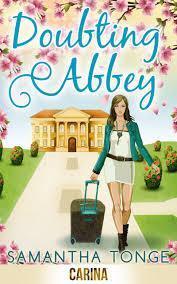


Tell us a little about yourself?
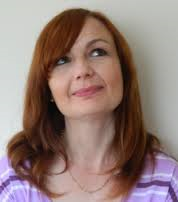
I live in Cheshire with my lovely husband, two fab children and two cheeky cats. I have sold over 80 stories to women’s magazines and have had three novels published by Carina UK. I love writing romantic comedies. And eating cake.
Now tell us something about yourself that someone would be surprised about, grin.
Ooh, um … I am not very well read. Four academic years at university put me off the written word for a long time. I gradually got back into it by reading women’s magazines. This is probably why I write very commercial fiction!
Did you always want to be a writer?
It sounds corny, but I always knew at the back of my mind that, one day, I would write. I never did anything seriously about it though, until my late thirties when my youngest started school.
Your books are really lovely, funny and well-written. Doubting Abbey was hysterical and I just loved your latest book Mistetoe Mansion. What’s coming up next?
Aw that is so kind, thank you! Well, my next book is another romcom and stars a new set of characters. It is set abroad and has not one, but two VERY hot heroes!
Do you have a favourite leading lady or man from your novels. Or would that be like having a favourite child?
I do have a HUGE soft spot for Gemma from Doubting Abbey – she has the kindest heart and is the ultimate, loyal best friend. Plus she makes me laugh – I never know where she is going to take me!
What is your writing process – do you write every day? Where do you write?
I am lucky enough to write more or less full time. I write at a tiny desk, in the spare room. I used to be paranoid about noise and put ear plugs in, but I am much more laid-back now.
What’s the biggest lessons you’ve learnt in your career as a bestselling author?
That not everyone is going to like your work. That complete strangers can be incredibly generous with their support. And that if you never give up on your dream, you will get their eventually.
30 second Sam
Champagne and canapés or tea and scones? Tea and scones (although can I have coffee? ) Course you can, I’m a coffee girl meself, grin!
Sea or country? Ooh, difficult one… For a complete getaway, the countryside
Dogs or cats? Cats! I have two, one short-haired ginger and a long-haired tortie. They are both ill at the moment so I feel like a veterinary nurse, dispensing 6 tablets and one syringe-ful of medicine every day!
Plot or free form? Normally I would say plot – but with my current work-in-progress I am flying by the seat of my pants… Which makes me a little nervous, but it is very exciting!
Connect with Sam
Follow Sam on Twitter here or visit her website here.

February 2, 2015
Author interview : bestselling writer Rebecca Raisin
Hello everyone!
I’m so thrilled to be featuring bestselling author, Rebecca Raisin on the blog today. She’s one of those amazing authors who really draws you into her remarkable world.
Rebecca is the beloved creator of the popular Gingerbread café series including The Bookshop on the Corner, Christmas at the Gingerbread Cafe, Chocolate Dreams at the Gingerbread Café, Christmas Wedding at the Gingerbread Café. Her latest book, Secrets at the Maple Syrup Farm is being released this April and later this year the sequel to The Bookshop on the Corner, Christmas at the Bookshop on the Corner.
Welcome Rebecca!
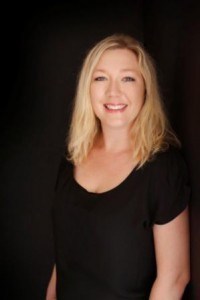 Tell us a little about yourself?
Tell us a little about yourself?
I’m a writer from Perth, Australia! I have twin boys, who would prefer I write about zombies, rather than romance, and I have an antisocial cat named Blackie. My hubby and I would like to take a year off and travel around Australia with the kids, and that’s something we’re trying to make happen! That’s the beauty of writing, you can do it anywhere!
Now tell us something about yourself that someone would be surprised about, grin.
I’m allergic to heat, despite living in one of the hottest parts of Australia! It’s a bit of a nightmare in summer time!
Did you always want to be a writer?
I have loved reading since I was a little girl, and dreamed about being a journalist when I was younger! I’ve always had a love of words, and as I got older I thought one day I’d write a book, even if I was the only one who ever read it! Once I had my twin boys, and was home full-time I started writing and fell in love with it. Now, if I miss a few days writing for whatever reason, I pine for my fictional friends until I can get back in front of the screen again!
The Gingerbread Café series is such a hit, the characters so beloved, did you ever expect them to be received the way they are?
Oh, thank you! That’s so sweet! I had no idea! I really didn’t know much about the publishing world at that point, and only hoped that people enjoyed the story. I didn’t expect it would turn into a series, I didn’t really have any expectations, I was just so grateful to be published! I received messages asking about when they second book would be available, and I was like, “What!” So I wrote a second Gingerbread Café book, and then a third, and also a linked book, with another main character. I feel incredibly lucky that the girls from the café resonate with so many readers! When I wrote the final Gingerbread Café story, I was so nervous. I was also sad about having to leave the girls forever! I just hoped that people liked where I’d left them, and that I’d tied it up as per people’s expectations. It’s more emotional than the other books, and I felt really connected as I wrote it and I hoped that translated. It’s been well received, and again people asked for more! Which just makes my day!
Fans are super excited that you’re telling a Christmas story of The Bookshop on the Corner (Which was my favourite book of yours too, grin) what inspired you to write it?
Oh, thanks again! I really loved writing about quirky Sarah! She was so much fun, and so different from the other girls. I felt that I wasn’t quite finished with her and her development as she finds a certain level of confidence as her love life progresses! There’s a big change happening for Sarah in Christmas at the Bookshop on the Corner and without wishing my life away, I can’t wait until next October when it’s released!
Do you have a favourite leading lady from your novels. Or would that be like having a favourite child?
Hahaha! A little! But I am happy to admit it! I absolutely adore CeeCee! Her no-nonsense attitude and her southern one liners make her a favourite of mine! I love her!
What is your writing process – do you write every day? Where do you write?
I write almost every day, sometimes I’ll have the weekends off depending on what the boys have on, like swimming lessons or whatever. I don’t write at night, if I haven’t written during the day, then it won’t happen! I usually write every week day, and then do other things on the weekends like blog posts for friends and things like that. I write quite fast, and then edit very slowly. I love editing, I go over the story a number of times, and that’s my favourite part.
What’s the biggest lessons you’ve learnt in your career as a bestselling author?
Thank you! I think the biggest lesson is that it’s not simply about just writing a book anymore. You, as the author, also have to do a fair whack of promotional work to get your book some visibility. Social media rules, and you have to spend the time on all of that as well as write. I enjoy that part too which is lucky! If I’m not writing I’m chatting on twitter or Facebook!
30 second Rebecca
Champagne and canapés or tea and scones? Champagne and canapés!
Sea or country? Sea!
Dogs or cats? Cats!
Plot or free form? Free form!
You can connect with Rebecca on her blog, or via Facebook and Twitter.

January 29, 2015
The story behind Twin Piques : an interview with chick lit author Tracie Banister
Hello everyone!
I’m thrilled to feature fabulous chick lit author Tracie Banister on the blog today. Tracie is the author of the popular novels Blame it on the fame, In need of Therapy, and now Twin Piques.
Welcome Tracie!
Tell us a little about yourself?
Hi Lily, thanks so much for having me on your site! My name is Tracie Banister, and I’m an author of three Chick Lit novels, along with being a blogger, TV addict, and dog lover. I live in the suburbs of Atlanta, with my two Cocker Spaniels (That number is about to increase as a puppy is being added to the mix next month!)
Now tell us something about yourself that someone would be surprised about, grin.
Ooooo, let’s see. Here’s an unusual tidbit about me: I was born with a geographic tongue, which means my tongue has a lot of lines on it like a map!
Did you always want to be a writer?
Pretty much. I started writing plays for my class to perform when I was in elementary school, then I moved on to writing stories about my friends and I having different adventures when I was a little older. I would bang out daily instalments of those stories on my typewriter each night, fold them up into little triangles, and slip them through the slots of my friends’ lockers the next morning. It was always fun to get their feedback at lunch!
Your latest book Twin Piques is such a lovely story – I’ve always been fascinated by twins and how they can be so different. Did you always want to tell a story about twins, where did you get the idea?
My very first attempt at novel-writing back when I was twenty was a Historical Romance that had twin heroines (The cringeworthy title of that tome was Rapture and Deception.) I never finished that book, but the idea of identical twins stayed in the back of my mind.
Twin Piques began its life as a short story for an anthology that was asking for romantic, dog-centric stories. I came up with the idea of writing about a heroine who was a sweet, whimsical pet psychic and what happens when she meets up with a grumpy academic who thinks she’s a nut. I soon realized that I had way too much story to tell for a short and shoved the idea into my Unfinished Projects folder. A year or so later, it occurred to me that I could have even more fun with my pet psychic character if I gave her an identical twin who was very no-nonsense and left-brained in contrast to her, then I was off to the races with writing the novel!
Do you ever cry when you’ve finished a novel or miss your characters?
As much as I love my characters when I’m writing for them, I’m always happy to give them closure at the end of a book and move on to a new set of characters. And they stay alive long after I finish writing the book because readers ask me questions about them and I post pieces about them on my blog. I don’t really feel like I have to say goodbye to my characters because they’re always in my head!
Do you have a favourite leading man or lady from your novels. Or would that be like having a favourite child?
There’s no way I can pick a favorite amongst my heroines as they are all close to my heart, but I will confess to having a major crush on Gavin aka “Gav” from Twin Piques. He has a cool job that requires creativity (graphic novelist), has a naughty sense of humor, is a romantic at heart, and let’s not forget the rockin’ bod he has from being a marathon runner – yum! ;)
Note from Lily : So proud of myself from restraining my English self from putting in the missing ( wink) o’s in humour and favourite. Grin.
What is your writing process – do you write every day?
I try to write Monday through Friday, then take the weekend off to tend to my real life and do other book-related things (write pieces for my blog, do promo, catch up on social media). Generally, I am the tortoise, not the hare, with my writing. When I need to up my productivity level and meet a deadline, I’ve found The Pomodoro Technique to be very helpful as it makes me focus on nothing but writing in manageable, 25-minute chunks.
What’s the biggest lessons you’ve learnt in your career as a bestselling author?
You have to be patient and manage your expectations. Rome wasn’t built in a day, and neither are readerships.
30 second Tracie
Champagne and canapés or coffee and biscuits? I don’t drink or eat sweets, so how about some tea and toast (raisin, please).
Sea or country? The country, for sure. My dream has always been to have a writing cottage in the English countryside, with a beautiful garden right outside my study window.
Dogs or cats? Unfortunately, I’m allergic to kitties.
Plot or free form? A little of both. I don’t outline (I hate it!), but I usually have the beginning, the ending, and a lot of key points in the middle of my stories in my head before I begin to write. I always say that the best bits in my books are the things that aren’t planned, though.
Read on to find out more about Tracie’s latest novel.
Twin Piques
Forensic accountant Sloane Tobin and kooky pet psychic Willa may have the same face, but that’s the only thing these identical twins have in common.
How she can read the hearts and minds of animals has always been a mystery to Willa, and her rotten luck with men is equally baffling. Although she’s been looking for “The One” for what feels like forever (A teenage marriage to a French mime and dating a guy named Spider seemed like good ideas at the time!), optimistic Willa refuses to give up on love. When she meets Brody, the handsome rose expert hired to save her grandmother’s garden, she’s instantly smitten, but why does he keep sending her mixed signals? Does he return her feelings, or is their attraction all in her fanciful head?
Unlike her twin, Sloane has zero interest in romance. Her passion is her job, where she uses her gift for numbers to take down slimy embezzlers and asset-hiding spouses. When she’s assigned two high profile cases, Sloane feels confident the promotion she’s been angling for is within her grasp. But will her plan to climb the corporate ladder be thwarted by difficult clients, her co-worker-with-benefits, or – most surprisingly of all – her own sister? And how’s she supposed to stay focused on the drama at work when her childhood friend, Gav, moves in next door and the spark between them becomes impossible to ignore?
To get what they both want, can Willa and Sloane band together and rely on each other’s strengths? Or will their differences drive them apart once and for all?
Buy Twin Piques (Amazon US) Amazon Global
Connect with Tracie

January 26, 2015
Review copies of The Postcard for any device
Hello everyone!
I’m thrilled to announce that I now have review copies of The Postcard available for all eBook devices, so while it is currently only available on Amazon at least reviewers can read it on their device of choice.
I decided to do this ahead of launching The Postcard onto all the major online retailers towards the end of March this year, so readers from Nook etc will be getting a sneak peak.
If you’d like a copy in exchange for an honest review, please let me know. I’d be thrilled to send you one.
Reviewing made simple
With regards to reviews, I’ve found that many people get put off leaving one because they think it needs to be long, poignant or read like it was crafted by Umberto Eco, which isn’t true. A quick sentence or two to say that you enjoyed the story or not, perhaps with a short reason as to why can be very helpful to fellow readers, and of course to writers as this helps spread the word about our work. It can also help us learn from mistakes or offer some insight into what readers would like. In short, it’s hugely beneficial. Grin.
Find out more about The Postcard below, and do let me know if you’d like a review copy, you can leave a comment, tweet me or pop me a mail and I’ll send you a copy for your device of choice.
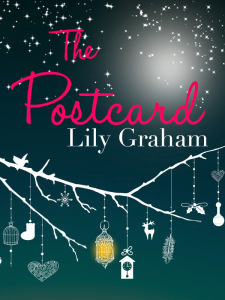 “I rarely read such a beautiful writing style as this,” Isabell Homfeld, from Dreaming with Open Eyes.
“I rarely read such a beautiful writing style as this,” Isabell Homfeld, from Dreaming with Open Eyes.
” A beautifully written and truly moving book, that had my eyes well up on several occasions. The writing is tender and emotive, the story sweet and whimsical, and the characters loveable …” Paris Baker, Paris Baker’s Book Nook.
When Ivy Everton, a children’s book illustrator, moves to a coastal town in Cornwall to start a new life with her husband Stuart, she is given her mother’s old writing desk, a bittersweet token from a mother who made childhood magical.
When she clears it, she finds that the desk holds an unexpected surprise; one she wishes in a way that she hadn’t found. As hidden inside is a faded postcard addressed to her, in her mother’s fine script.
At first, the postcard serves only to haunt her; a constant reminder of her mother’s last message, now forever silenced, and she can’t help but wonder what unwritten secret lies unsaid.
Yet, as the days pass, mysterious, inexplicable things begin to happen, odd items go missing from her studio, only to reappear, ethereally transformed in the seemingly empty desk. Soon Ivy realises that the postcard was never blank, it was simply waiting … waiting for her to find it.
Part ghost story, part magical Christmas tale, The Postcard is about love that transcends time and space to transform and heal. It is available now from Amazon.
Thanks so much,
Lily

January 22, 2015
What happens in Tuscany … an interview with the hilarious T.A Williams
Hello everyone!
I’ve got something quite exciting planned for this year. I’ll be hosting regular interviews with some of my favourite authors, giving a little insight into their worlds, novels, and inspiration.
If you enjoyed my interview of bestselling authors Jan Ellis and Cathy Bramley, you’ll enjoy these!
First up is the hilarious T.A Williams, author of Dirty Minds, The Room on the Second Floor, When Alice met Danny and now What Happens in Tuscany, I really enjoyed interviewing him, even as I’m wildly jealous that he gets to live in the beautiful south west …
 Tell us a little about yourself?
Tell us a little about yourself?
I’m a bald old man. I haven’t always been old, but I’ve been bald since getting married almost 40 years ago. My wedding photos show me with a fringe. That didn’t last long. Still, if you’ve got to have a handicap, baldness is about as good as it gets. Anyway… I studied languages, went to live and work for 8 years in Italy and then spent the rest of my working life in Exeter, down in the south west of England. I ran a big English language school until I retired ten years ago and became a property developer/full time writer. I live in a village outside Exeter which has featured in various of my books under various pseudonyms. I am married to an Italian artist. I spend most of my time in my study or out on the bike while my wife spends most of her time in her studio or at exhibitions, and we meet up at mealtimes and bedtime. It’s a good system and the secret of a happy marriage. Keep the hell away from each other as much as possible. It works for us…
Now tell us something about yourself that someone would be surprised about, grin.
I am a man who writes chicklit. And, if that’s not surprising enough, I am a fully paid up member of the Romantic Novelists’ Association. Somehow I think I’m going to stand out at meetings. Oh yes, and my wife and I always speak Italian together. I’m counting on that to help stave off the onset of Alzheimers.
Did you always want to be a writer?
Yes. Ever since I first wrote a 40 page rip-off of “Swallows and Amazons” at the age of 12 (in pencil). The day job was necessary to keep the wolf from the door, but I’ve been writing thrillers and historical novels since I was 20.
It’s so refreshing to see a man who enjoys writing and reading romantic comedy, what prompted you to write in the genre?
To be totally honest, it went like this: I had just finished writing a trilogy of “serious” historical novels set in the Middle Ages and I wanted a change. I saw an article in the paper saying that erotica was going to be big in 2014 so I thought I’d give it a try. I soon realised I didn’t have the experience or the inclination for serious erotica, but I did enjoy writing humour. I soon worked out that you girls buy more books than men so it seemed logical to move into chicklit/romcoms. That’s why I write under the androgynous name TA Williams, rather than Trevor Williams. I wouldn’t want to frighten any prospective readers off.
Your latest book What Happens in Tuscany sounds lovely, what inspired you to write it?
The setting, just outside Florence in an old villa on a hillside, was inspired by the place we used to live when I was working in Florence. And, in fact, I had a whale of a time basking in nostalgia as I wrote it. I went for a cycling tour of Tuscany in September last year that refreshed my memory and whetted my appetite. There’s a lot about food and drink in the book! As for the origin of the main premise of the book, I really don’t know. For those who haven’t read it, it’s all about a girl of 25 who has been kept cooped up in a magnificent stately home all her life by an over-protective father. After his death, she engages the services of Katie to help ease her into the 21st century. She’s never used a computer, never had a mobile phone, never been out with a man… How the idea came to me I really can’t say. I know I was out on a long bike ride and by the time I came home the idea had crystallised, but what sparked it off, I really don’t know.
Do you ever miss your characters when you finish a novel?
Yes. I keep wondering if I should write a sequel to one or more of them. In fact, a number of people have asked me to, but I’m still making up my mind. Mind you, there are probably some fairly easily identified similarities between most of my main characters, so, even though I’m writing about Katie, it could just as well be Alice. I like writing from the point of view of genuine, kind, determined characters. There are a few baddies around, but I don’t seem to relate to them as easily. Strangely, I don’t carry any physical image of any of my lead characters in my head. I often can’t remember what colour eyes I have allocated, or what colour hair.
Do you have a favourite leading man or lady from your novels. Or would that be like having a favourite child?
As I said above, they are all vaguely similar so there’s a process of amalgamation going on. There is one thing about me, however; I always like my most recent creation more than its predecessors. This applies to my other life as a property developer. I always like the one I’ve just finished. And with houses as with books, you learn stuff as you go along so, hopefully, they should get better and better as I go on. So my favourite is currently a girl called Samantha who is studying for a PhD in archaeology. She stars in book 5 which I have just finished.
What is your writing process – do you write every day? Where do you write?
The easy one first: I always write in my study on a desktop computer. As for when, I find that I binge write. I can go days, even weeks without doing more than scribble a few ideas on a pad and then, when I set off, I can find myself glued to the screen for ten hours a day.
What’s the biggest lessons you’ve learnt in your career as a author?
Never give up. The writing is the easy part. Finding a publisher and then finding people who enjoy your work is the hard part. It took me 40 years before a publisher (Carina UK) took me on. There were long periods in that time when I despaired of finding a publisher and almost gave up. So stick at it.
30 second T.A
Champagne and canapés or tea and scones? It would have to be champagne. If I ever win the lottery, I could easily develop a series habit for the stuff.
Sea or country? I live in the country, near the sea. I love the sea and used to do a lot of windsurfing but, recently, I’ve taken to the country more. So, now, country.
Dogs or cats? There’s a black Labrador in all my books. I just love them. I love cats as well, but you can’t beat the companionship of a dog.
Plot or free form? I’m a seat of the pants man. Some books I have started, knowing only the main character and where it is going to be set. What is wonderful is when it suddenly starts writing itself and the characters lead me off in directions I wasn’t expecting. My editor likes to have a synopsis of each new book, but I inevitably end up writing the book first and then creating a synopsis after the event.
Thanks so much T.A!
To find out more about T.A you can visit his website here or follow him on Twitter and Facebook.

January 21, 2015
Postcards from Cornwall
Since I published The Postcard, I have had a few readers ask me about why I chose to set my story in Cornwall.
The truth is, I’m a little in love with the area, set on the far west of Britain, completely surrounded by sea and holding within its palm an incredible rugged beauty, charm and intrigue.
There’s a little bit of mystery to it as well with breathtaking scenery that looks ever so slightly otherworldly, from quaint cottages that date back to medieval times to landscapes that look as if they border ghostly realms.
I wanted a setting that could capture the beauty of sprawling sea and countryside and also a hint of magic for my ghost story and in a way I thought of Cornwall before I even thought of the story. And now, after having written The Postcard, I’ve left a small part of my heart there too.
.(The cottage pictured top left is in Tintagel, Cornwall … made famous in the Harry Potter film The Deathly Hallows)
Here are some more beautiful images of magical Cornwall … taken from Pinterest, which I’ve recently joined if you’d like to follow my boards here.
Hopefully these will brighten your day. xx
 Imagine reading amongst the bluebells
Imagine reading amongst the bluebells Or here?
Or here?
 Inspirations behind ‘Sea Cottage’ in The Postcard …
Inspirations behind ‘Sea Cottage’ in The Postcard … Really you can’t go to Cornwall and not have a pasty.
Really you can’t go to Cornwall and not have a pasty. Stairway to the sea at Tintagel Castle in Cornwall, England
Stairway to the sea at Tintagel Castle in Cornwall, England The annual lantern parade in Truro
The annual lantern parade in Truro
 Land’s End, Cornwall, England
Land’s End, Cornwall, England

January 16, 2015
Dreaming with Open Eyes Interview
Hello everyone!
I had the honour of being interviewed by the lovely Isabell from Dreaming with Open Eyes who featured me as a spotlight author this week.
Isabell is a well-known book blogger from Germany, who manages to fit in her reading love between her demanding day job as a talented media designer. Her reviews are very thoughtful and well-written, she’s very honest and I appreciate that. I’ve probably added close to 30 books to my wish list because of her recommendations. If you check out her site you’ll see all the beautiful illustrations she’s designed as well.
Here’s my spotlight interview from Dreaming with Open Eyes. Thanks so much Isabell!
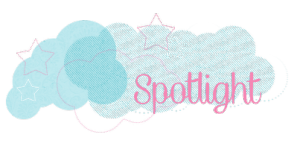
Hello Lily, I’m delighted to welcome you on Dreaming With Open Eyes. For the readers who don’t know you, could you please introduce yourself?
Thank you so much for welcoming me on Dreaming with Open Eyes, it’s lovely to be here.
A bit about me? I have been a journalist for over ten years working for national newspapers and women’s glossies. I studied English literature at varsity, and spent years wishing that I could be a professional reader for a publishing house so that I could be paid to read (preferably in bed) as opposed to finding a proper job that involved cubicle farming but when that didn’t work out and I got allotted a cubicle of my own I decided to commit fiction and have been writing my stories late at night ever since. Though by late at night I mean 7pm really. My first novella The Postcard, a magical ghost story set in Cornwall was released in December last year.
The Postcard is your first self-published novella. What can you tell us about it that will pique the readers interest?
It’s really a story about a mothers love for her child, and asks the question : when someone that we loved passes away is that really the end? For Ivy Everton, a children’s book illustrator who moves to Cornwall to start a new life with her aspiring creative gardener of husband Stuart, it’s a question she begins to ask herself when she finds a curiously blank postcard addressed to her in her mother’s hand. As odd things begin to happen, items go missing in her studio, only to reappear magically transformed, Ivy begins to realise that the postcard was never really blank; it was only waiting for her to find it.
Can you tell us a little about your writing journey? How did you hone your skills and learn the craft?
As a lifelong lover of fiction, books and me have been linked in sentences for as long as I can remember and so I suppose along the way I figured I’d try writing myself. I dabbled with this in school, though it was only in varsity that I began to take it a bit more seriously and attempted writing actual novels. After studying literature then publishing (which I didn’t enjoy as it was more about the business side of things rather than finding and nurturing writers which is what I believed I’d be doing) I got a job as a junior reporter for a local weekly paper which was a complete crash course into writing.. Though I’m grateful that I began writing fiction before I began my training as a journalist because I got into the habit of getting the story down and of losing myself in the flow without interfering critical inner voices (like shouting editors and sub-editors) because the magic, for me at least, lies in that creative flow when your fingers can’t keep up with the wisps of story in your brain.
Tell us about your inspiration for the story – how did you come across the story of part ghost, part magical Christmas tale?
I was actually meant to write a different book when I thought about The Postcard. Very uncharacteristically for me I’d written an outline that was over 3000 words long, a story where I’d figured out the beginning middle and end, then found when it came down to actually writing it I couldn’t, my enthusiasm had run out.
I was driving to work and the idea of a postcard from beyond the grave from popped into my head. That was all I had. Nothing more. But it was enough. I couldn’t get it out of my head. I’ve always loved fantasy – my mother is in some ways the inspiration behind Alice, Ivy’s mother, who has an affinity for the unexpected, so I grew up loving those types of stories. From there it evolved.
Can you please describe your writing process for The Postcard?
I suppose like the book itself, there was a degree of magic to it, in the writing of it. I’m not quite sure what happened to me but for the first time in my writing career I just let go. I’ve never really been a planner, preferring to work quite freeform than with a plot as I find it can (for me at least) be very restricting and sometimes curtail the creativity, as I like to surprise myself. So I had no plan or outline, but as soon as I started writing it, it just enfolded, whole chapters came out and like a puzzle within a few weeks I had the story told. I wrote everyday, sometimes for up to ten hours a day. It was heady and exciting. Whole weekends were chewed up as I lost myself in magical Cornwall.
Of course, most people find this process mad, in some ways I do too. For a long time before I wrote The Postcard, I felt that perhaps I needed to refine my process, to become more of a planner and to work to a plot and in a way I allowed myself to be persuaded otherwise but it just doesn’t work for me. I proved that to myself the first time I actually wrote an outline and found that afterwards I just couldn’t write the story because I felt stifled. Writing became work and it shouldn’t feel that way. For me, writing has to be about abandon as that’s where the magic lies.
What made you decide to go into self-publishing and not trying finding a publisher?
I think it was a combination of things. Turning 30 was one, I always vowed I’d write a book by the time I was 30. Freedom was another. I had discovered blogging earlier and found that I loved the freedom that came from hitting publish without having someone else give it the okay, and I loved the idea of writing a book this way, where I could get to the readers without a middleman and really see what people thought before a publishing house put their stamp on it. In some ways it was like a personal test. It was more about the journey – the writing and editing and releasing of it (it was professionally edited by my editor friend) and I didn’t want to take this positive experience and take the chance of souring it with rejection slips. I’m still very interested in traditional publishing and I will be pursuing this in future (it’s still the dream for many I think!) but for now I wanted my first foray into publishing to be under my own steam. I think self-publishing is very exciting, it’s hasn’t got the stigma it had years ago but is now a real choice and I’ve loved every minute of it.
How was your publishing day?
Funny and nerve-wrecking! I did a very slow, soft launch. I’d heard so many horror stories of books not formatting correctly or sudden unseen problems. So I released it and didn’t tell anyone except my best-friend and husband. It was more of a very scared whisper, ‘I hit publish. I hit publish, oh god why did I hit publish?!’ Then my Internet went down so I didn’t even know it was up. My husband and I had to drive to a restaurant with Wi-Fi so we could see it! Once I was happy that no unforeseen issues had sprung up I told all my friends and family and we celebrated – I had lots of wine and chocolate! Since then it’s been the most amazing time, and every day I wake up excited especially when someone has left me a note to tell me they enjoyed it or I’ve seen that I’ve now gotten a new sale. It’s an incredible feeling, though it still doesn’t feel real.
What type of books do you like to read and who are your favorite authors?
I have such an eclectic reading taste, it often depends on my mood. I’m often found reading travel memoirs and pretending that I’m Peter Mayle, though with fiction, fantasy is often the firm favourite, Neil Gaimen, Robin Hobb, and Terry Pratchett are my go tos. I also love magical realism and my favourite authors there are Alice Hoffman and Joanne Harris and recently Erin Morgenstern. Though I also love romance and contemporary fiction and Jojo Moyes, Marian Keyes, and Sophie Kinsella are a joy to read.
Do you have your own writing space? Tell us a little about where you like to write?
I have the most beautiful writing room. It’s lined with books, painted a dove grey and has a lovely Queen Anne chair and a French inspired dining table that overlooks the garden. Though I very seldom write there which causes me endless guilt as I prefer to write in bed, often late at night, or stealing an hour or two before work, or snatched during lunch time. I have a dream of becoming a full-time author and getting my own writing garden room … though in reality I’d probably just write wherever we stick the fridge.
Are you working on a new novel at the moment? What’s next for you?
I’m busy revising my second book, a full length novel, called An Invincible Summer, set in Crete about a journalist who discovers a burnt down vineyard and tries to get to the bottom of what really happened, while dealing with her own loss and grief. It should be released sometime early this year. I’m also working on another magical story about a man who receives the heart of a girl after he gets a heart transplant, which I hope to release by the end of the year.
Lastly, tell us three reasons why a reader should pick up your novella.
I think if you enjoy a different story with a twist, a bit of romance, drama, and some magic you’ll enjoy The Postcard.

January 12, 2015
An Invincible Summer … coming soon
Hello everyone!
My upcoming novel An Invincible Summer will be released early this year, and I can’t wait, it’s a story that I really enjoyed writing. It tested me quite a bit as I had to get out of my comfort zone and try something new.
It’s a story of love, loss and a burnt down vineyard in Crete. It’s also a story of becoming your own hero because sometimes you have to save yourself before you can save anyone else …
Here is a sneak peak. I hope you enjoy it!
An Invincible Summer
Prologue
Her hands were like old parchment; brown, mottled, and thin, yet to my five-year-old-eyes they were capable of anything; magic not least among them.
Today they were a domestic symphony rolling out the dough; the flour like fairy dust sprinkled on the marble countertop. Her arms strong and wiry as she kneaded, while she beguiled me with stories from far away conjuring images of sun-drenched olive groves, plum coloured wine sipped out of short glasses on cobbled sea-front tavernas, honey drizzled over rich creamy white yogurt, and wild pink tinged peaches warm from the sun.
‘Yew kno’ the story of how you got your name?’ asked Yaya in her heavy accent. Flour smudged on her soft brown cheek while she peered down at me; a smile edging the corner of her mouth.
I grinned, my slightly toothless five-year-old grin, while swinging my legs on the counter where I perched with my new and most cherished possession – the collected works of Hans Christian Anderson.
‘Yaya, you named me.’ I said, with a just a hint of a sigh. My name was collateral damage from my mixed heritage: part English part Greek, wholly doomed to walk through life and public school with the slightly made-up sounding name of Ariadne.
‘Yes-a but do you know who I named you after?’ asked Yaya holding up the index finger on her left hand, the one that curved ever so slightly at the tip, as if she would lift each vowel along with it in her lyrical burr.
I shook my head, espresso eyes wide.
‘I named you after one of the most famous princesses of all-a time eh the one who suffered the most-e,’ she said oddly with a sense of pride about the latter. ‘Unlike these silly princesses from your fairy book.’
My mouth formed an ‘O’ of surprise and my feet paused mid-swing.
‘Why I do this, eh?’ she asked.
I shrugged. She was a bit mad. This wasn’t exactly news. I loved her anyway and maybe a little because of it.
‘Well spanakopita the goddess Ariadne suffered most terribly, and it was her bravery and courage, not her beauty though she was beautiful, that made her a hero, which I think-e is what makes a hero, a hero, no?’
I shrugged. I supposed so. I liked the idea of the woman being the hero, at least.
Yaya continued, ‘She was the daughter of a king; a mad Cretan king who ordered a young man named Theseus to enter a maze and kill a wild monster of a beast that had killed many people before. Knowing that this young man was facing certain death, Ariadne helped him escape, and they fell in love. Together they fled the kingdom with Ariadne believing that she would have a love that would last forever. Only it wasn’t to be.’
‘Why? What happened?’
‘He left her. He left her sleeping in a cave one night so they say, and he ran away.’
I gasped. That was not how the story was meant to go. ‘What happened to her?’
Yaya looked at me with her beetle black eyes, ‘Well there are many different stories, and the historians they all tell different ones. But for me the story my own Yaya told me is still the best-e. After Theseus left her Ariadne sunk into despair barely able to keep going. Feeling sorry for the woman who had sacrificed everything for this man, Dionysus a god who knew all about suffering, as he had lost so much himself, fell in love with her and rescued her … though he would say that she saved him too. So you see spanakopita, life is never what we think it will be; it’s not always like these stories …’ she said tapping the green cover; leaving behind a faint film of flour on the cover. ‘It can be full of joy or misfortune, but mostly it’s a mixture like this dough. A real hero is like the bread, rising after it has been beaten.’
Chapter One
It’s not that I hate my job.
Hate is a strong word. I don’t hate it.
I mean there are parts of it that I don’t like, but that’s common with jobs isn’t it? No one loves every minute of their job. Well, except, maybe Jeremy Clarkson on Top Gear.
But the rest of us? Not so much.
Sometimes when I think about my job, like on a Sunday evening, I get this odd feeling where I lose all sensation along the left side of my body.
But that’s normal.
Completely normal I’m … sure. It’s the Sunday blues, right? And anyway it doesn’t last that long. By around midday on Monday I’m fine. Mostly.
By then The Mail & Ledger is out and I can deal with whatever is coming my way. The irate phone calls, the tear-soaked letters, and the occasional little old lady queuing outside my cubicle. Like yesterday morning when Rosa Greenberg called after The Mail & Ledger hit the stands. My hands shook as I took the call. I scurried down as low as I could in my seat trying to avoid Kimberly Mondsworth-Greene’s gimlet gaze – my colleague in the cubicle next to mine who was busy writing her “action list” for the day with different coloured Biros to underline things like “priority item #1” and “red flag – follow up before 12.”
I despise Kimberly Mondsworth-Greene.
Meanwhile, Rosa Greenberg sobbed into the receiver, ‘I just wasn’t ready I mean it’s not like Pauline, you know, Pauline from next door. I told you about her when we spoke after, after… it happened,’ she sniffed.
I closed my eyes hoping that just this once my tear ducts would behave. Today I vowed as I do every Monday, I would be strong.
Rosa continued, ‘Pauline had time; Roger had two heart attacks already, and even then she says she had been preparing for it, but George was … just gone. I know he was 78, but he was fine. He wasn’t young, but he wasn’t old, not really, it was too soon.’
A loud foghorn sound announced that Rosa was blowing her nose. I took the time to surreptitiously reach for my ever-ready box of Kleenex and mop up my own eyes.
I’d have to be strong some other time.
Alerted to the sound like a vulture circling from above, Kimberly Mondsworth-Greene turned to raise an eyebrow at me. I ignored her, swivelling my chair as far away as I could to the wall opposite, while Rosa prepared to send my leaky tear ducts into overflow.
‘So beautiful what you wrote … that’s why I’m calling – it’s like you knew him. I was worried about it you know, worried that it wouldn’t be George, but it was. I know this probably sounds silly, but George would have loved to have read it – he would have been so pleased that you wrote about his time in India dear …’ she said before ringing off.
Afterwards, I put the phone back in its cradle and stared at the horrid blue speckled carpet until I had regained control of my wobbling chin.
Kimberly Mondsworth-Greene doesn’t approve of crying at your desk.
‘Journalists,’ she told me haughtily a few weeks ago,‘- are meant to be objective, to report the facts without emotion. Try to be more of a journalist Ria,’ she rebuked while I considered that the first action on my own “action list” would be to staple her stupid list to her forehead. I suppose that wouldn’t be an objective act though would it?
The thing is being objective is fine for Kimberly, who gets to report about current affairs and breaking news, in the entertainment world anyway. Like how big Kim Kardashian’s bum looks this week compared to last.
Oh yes.
They ran a whole piece asking if Kim Kardashian’s bum was worth insuring for a million pounds.
People wrote in.
There were debates.
There were polls.
There were people with a bit too much free time on their hands if you ask me.
But I digress. My point is that it’s hard to be impartial when you write about death every day.
See, that’s my job. I’m an obituary writer for the weekly London paper The Mail & Ledger.
I’ve been doing that now for close to four years. Four very long years. I never planned on being an obituary writer. It’s not something you study at varsity for. No one says, ‘I’d like to do a course on financial journalism and obituary writing.’ And when I joined the paper the job wasn’t advertised as “obituary writer” either. It was: Writer required for popular London broadsheet, (yes, they actually called themselves a broadsheet, not a tabloid – I remember that clearly) graduate level acceptable. And when I started I wrote about other things too like films, events, and just once for a single glorious moment in my career, about travel … it was a little B&B just outside Sheffield, but still it was nice er … ish. Or it would have been if there hadn’t been a dead body in the dining room. But that’s another story altogether.
Although in retrospect it may have been a sign too. You know of things to come?
Because two days following the untimely death of a 97-year-old Mr Wimple from Sheffield; John Marshland, who wrote the obituaries retired, and I was asked to fill in for him until we could find a replacement. That was three and a half years ago – I’m still waiting for that replacement. But it’s just a glitch. Even Janice says so. Or, at least, she used to.
My boss. Janice Farland. She hasn’t said much about it being a glitch lately, to be honest. Not that I haven’t broached the subject, I have, quite regularly to tell you the truth. The last time, well let’s just say it didn’t go so well.
There were words.
There were tears. (Mine)
And threats. (Janice’s)
Then there was wine. (Me again)
And anyway it’s fine really. Most of the time I enjoy what I do, okay not enjoy really, at all, quite the opposite actually, if I’m honest. But I do feel a sense of purpose, of value in a way. Especially after what happened, like maybe I was meant to do it. Like it was all some really horrible calling? Which I realise is probably just a bit morbid. But I figured, for a long time anyway, maybe you don’t get to choose your calling? I mean we can’t all be called to be singers or doctors. Perhaps this was my calling, a professional mourner of sorts?
Or you know. Not
The thing is, and what gets me through really, is that somebody has to do it. And it may as well be someone like me who gets it. Though in hindsight maybe it would be nice if I didn’t get it quite so much. And the crying will stop eventually. Everyone said it would get easier. And it will. Someday. Still you’d think after four years that I wouldn’t cry every time someone called to thank me, or worse to shout at me for getting it wrong. Or just crying because it’s a Monday and I have nothing else planned that day anyway. Crying has become my thing, you know, like how some people are good at darts, I’m abnormally brilliant at it.
I’m not saying that my job is always hard. It isn’t always. Some days are actually sort of alright. It’s just that a lot of the time it’s a bit, well, brutal.
I mean you’re dealing with the very worst day of a family’s life, and you’re taking notes about the person they’ve lost, which is kind of horrible when you think of it that way, which I try not to. And if you get it wrong, well, let’s just say you know you haven’t actually ruined anyone’s life, but it sure does feel that way. Which is why sometimes on a Sunday when I think about work I get a bit panicky because that’s when the obituaries race through my head, and I know if I’ve made a mistake it’s too late. It will be there in print for the entire world to see, or London, or the people that read The Mail & Ledger anyway, or the obituaries at least, and they’re a tough crowd let’s be honest: retired school teachers, grammarians, my mum.
She doesn’t read it to be gloomy or anything, she just likes to read what I write; it’s nice – in its own slightly macabre way – probably how Tim Burton’s mum feels.
Although since it happened, Mum doesn’t read them anymore. I can’t blame her. If I didn’t have to, if I didn’t feel that I was needed; that perhaps what happened to me made me understand their pain, neither would I. Anyway, as I mentioned, on a Monday, after the phone calls, emails, or old ladies have left, (it’s always old ladies, never old men somehow) I can fix it on the online version, but I can’t undo what’s been printed. It’s not that I’m incompetent, or make lots of mistakes. Sometimes they just happen. How was I supposed to know that when the Woodrose family kept referring to Chester they actually meant Charles?
I mean I’m not an idiot, if it had been Chuck or something, I’d have checked, but Chester is a name, right? How was I to know it was a nickname? Who gives someone such a daft nickname? Well, anyway, it was a mistake that caused the real Chester Woodrose, a lecturer at Bristol University, to give a collective heart attack to the archaeology department when he showed up for work the next day, especially after they’d spent all the previous evening organising a touching memorial service. And now what was to be done with all the food? Or the giant dinosaur cake? The last was supposed to be a fitting tribute. Luckily Chester had agreed that the cake was a fine serenade, saying that when he really went he’d like one just like that. Just perhaps not purple and perhaps not Barney. (There was some mix up at the cake shop apparently.) While that had ended alright, and we printed a retraction (which had come with the price of Janice enquiring if I checked my facts properly – I had explained about the name but apparently she wasn’t interested in excuses).
She’d looked at me above her steel-rimmed glasses, perched on the end of her hawk-like nose, framing her hawk-like gaze, and said tonelessly in what I imagine a hawk would sound like if it had a voice, ‘I see your lips moving, but all I hear are excuses. I don’t like printing retractions. Don’t make it a habit.’
Yes. That’s the newsroom for you. Just delightful.
In case you’re interested, journalism is number six on the list of top ten professions that attract psychopaths according to The New York Times. This explains, well, a lot …
That’s another bit of information that may have been useful before I chose it as a career. Not that Janice is a psychopath, not the axe wielding kind anyway. More the “stick the figurative knife in your back, and make you doubt your own ability while handing you the rope to hang yourself with” kind. Pretty standard really. They seem to pop up in most offices nowadays, like lurid speckled carpets, and crappy open plan seating: Resident Psycho.
The trouble started though, as most trouble is want to do, in the present mire of my life with Kimberly Mondsworth-Green.
It was later in the day. My mind was in that comfortably numb state after having spent the morning worrying about everything that could possibly go wrong yet didn’t, and quite suddenly your body gives in, having decided that you’ve had your fill of anxiety for the day thank you very much. Or maybe the meds had kicked in. The ones Mum insists on force feeding me every morning, despite Dr Rushdie telling her that perhaps it’s time for me to just go off them and see what happens. I can never really tell. It’s a comfortable sort of hum, like white noise, for the nerves. I had just sat down with a cup of tea when she appeared: short and rather square in shape with square glasses framing her square, sharp-eyed face.
Her breathy, little girl voice – so out of place with all her “squareness” – caused the hairs on the back of my neck to stand on end before I processed what she was saying. I was good at tuning her out, let’s call it a self-defence mechanism. At some point though, she raised her hand in front of my face and asked, ‘So what do you think? We need about four people for the feature.’
I frowned, ‘Sorry, what feature?’
She gave me a look. It actually looked a little like sympathy. She even seemed a bit nervous, or what constituted as nervousness for Kimberly Mondsworth-Greene. It looked like she needed to pee actually.
What the hell would make Kimberly Mondsworth-Greene nervous?
‘We’re doing a feature about surviving unimaginable tragedies – you heard about the guy who won the lottery only to have his money stolen out of his bank account, and now he’s completely destitute, and his wife left him?’
I shrugged. She cleared her throat, not meeting my eye, ‘Janice is thinking of calling the feature “When the best day of your life becomes your worst”, and she wants to know if you’d share your story?’
My throat went suddenly dry.
Share my story.
I stared at her in horror. Janice’s awful, pithy title tearing through my brain: When the best day of your life becomes your worst.
Who were these people?
Then she said it. As if I had any doubt what she’d been referring to, she cleared her throat, and said, ‘About what happened to Christopher.’
As if she knew him. As if she had any right to say his name.
The room started to whirl. I pushed back my chair, not bothering to look at her as I rushed to the bathroom, my heel breaking on the tiled floor as I fled to the nearest stall, and vomited my shattered heart into the cold porcelain bowl.
Chapter Two
But I’m getting ahead of myself you see. Or behind myself as it were because it happened on a Tuesday really. As usual I was on the M4 on my way to work in my wheezy, gobbled up and spat out Renault. A relic that had been lovingly passed down to me from my grandmother once she had upgraded to a newer, more appropriate car for a lady in her 70s: the latest Renault Megane. What can I say? She liked what she liked. I reached down for a slug of the filter coffee that I had prepared bleary-eyed at six in the morning, my hand groping while I kept my eye on the road in front. Instead, my finger brushed the radio knob and tuned into some oldie station that was playing Sam Cooke’s Twistin’ the night away. I blinked in the grey dawn light, my throat constricting. And thought, simply: Yaya. The word itself a balm. Unbidden, the memory swam in front of my eyes and I saw us: my feet in their new sparkly red pumps; the ones that mum said I couldn’t have. The ones she went and bought me anyway. And us, together in the kitchen with the radio turned to her favourite station; the soundtrack of my childhood: Aretha, The Temptations, The Supremes.
I remember watching the cake rise through the blue door of the Aga; her smile as I tried to help, while we both twisted the day away, our hips in time, on a sunny, sunny afternoon.
I bit my lip and couldn’t help the watery smile on my face as my hands tapped along on the steering wheel. I barely noticed as the tears slid down my cheeks.
I swallowed and tried to push the image from my mind. Please, just not yet. Not today.
A car passed and honked its hooter. With a fright I changed lanes, and found myself taking the airport road by mistake.
The driver who passed me shot me an odd look, mouthing the word ‘lunatic’ at me.
I shrugged. Despite popular belief, lunacy isn’t exactly a choice. But I’m not sure if he got my mental message. He just continued to gawk. It’s not like I could exactly blame him.
It was then that I gave a thought to my hair. I’m not someone who usually concerns herself with hair. Well, beyond it being clean and neat really. There was a time when I did, sort of. There were hairdresser appointments, and highlights, and the obligatory consultations with Christopher before I lopped any of it off – he was such a typical guy that way. He’d actually pouted for most of the day when I came home with a bob once, but that had been a long time ago. But from the look I received from the driver I had to wonder … had I brushed it?
I had a look in the rear-view mirror and looked away just as quickly. They were still there – the dead things in my face where my eyes should have been, and above it, the nest that was my hair, shoved into an all-purpose, ratty topknot.
I really must brush it properly, instead of just giving it a quick wash and combing my fingers through it before I shoved it up and out of sight. But then I’ve promised myself that for a long time now.
I sighed. Okay. Focus.
At the closest exit, I’ll turn around, and with any luck I won’t need to explain my latest insanity to my boss. But at the thought of Janice or ‘The Devil-Who-Wears-Birkenstocks’ as I sometimes like to call her – once quite cheerfully to her face (I’d paid for it, I think, though it was during THE VOID so I’m not sure I really noticed), and our weekly “catch-up” meeting makes me put my foot down flat on the accelerator. My breathing turns sharp, and my hands tighten on the steering wheel. Basically what happens is that Janice goes through my copy line-by-line. And she lets me know what she likes. And what she doesn’t. To the point where I begin doubting my own name. Like last week.
‘Why do you mention this?’ she snapped tapping the obituary of Sarah Gilbert, and the bit about her tennis career – she was one of the first pro women tennis players after the Second World War. ‘Honestly Ariadne,’ she said using my full name, which she pronounced wrong (granted no one could pronounce it). Still her gall for even using my stupid bloody name made me want to stab her in the eye with my pen. ‘– That was so long ago, who would care?’ She said, eyes narrowing at me as if I were an imbecile. I didn’t take the look seriously; she looked at everyone that way. Mostly I felt sorry for her poor beleaguered husband; I mean … He had to have sex with that look. Ugh. I wondered if she kept the Birkenstocks on. Then really wished I hadn’t thought about it at all to be honest. Instead, I’d clamped my teeth in frustration and stared at her in disbelief – was she serious?
Sarah Gilbert would bloody care, which is precisely what I told Janice, which only made her hawk-like nostrils flare. Sarah Gilbert had been a housewife for most of her life. But before that she was a nurse in France who had seen the horrors of the Second World War and had done what she could to help. She’d raised three children and had been a doting grandmother. And once, a long time ago, she’d won at Wimbledon. It was important, a part of her and a part of her legacy. I’d fought to keep it in, and almost won, but when the copy ran over Janice cut it anyway. I was beside myself with anger. And rage. And, when I got home, with wine. I was beside myself with lots and lots of wine. This was when, for an unreasonable half a day, I considered taking up drinking professionally. God knows I need a hobby.
I’d taken two hours to open the email that came from the Gilberts the next day, dreading what it said. When I had finally opened it, I found that they had thanked me. It was polite; sweet even. This, of course, made it so much worse. The signs for Heathrow get closer and still I stay in the airport lane. Three exits. Two exits. One exit …
‘What the hell am I doing?’ I say aloud with a maniacal laugh as I take the entry lane for Heathrow International and head towards the nearest parking lot. Finding an open bay, I pull my car in and turn the ignition off, and sit in the dark. It’s strangely quiet. For a scary moment, I wonder if I can hear the sound of my own brain unhinging. It’s a quiet that builds and begins to pound in my ears. A noise outside startles me, making me jump out the car and race inside, away from my own inevitable madness.
Dr Rushdie had told me that madness wasn’t certain, even after everything that had happened. She suggested a hobby, which is when I’d suggested the drinking. The thing is, despite everything, I just didn’t want it to end that way: crazy Miss Havisham hair, dead eyes, and a bottle of tequila? It’s not what they would have wanted either.
Entering through the automated doors, I breathe a sigh of relief as I feel the warmth of the interior envelop me. I’m walking blindly, blinking at the sudden racket. All around me, the airport is teeming with people. Men and women dressed in business attire, wearing serious expressions as they tap away at their laptops and iPads pausing only to take a sip of coffee, ready to depart for some or other business engagement. Young adventurers wearing excited grins huddle in groups with their large backpacks in place, maps open, while they chat animatedly with one another.
There is the holidaymakers, the visitors, and the people coming home with exhaustion etched in the creases of their clothes and in the dark shadows under their eyes. Every wall, pillar and balustrade is densely populated, the larger groups creating a cacophony along the perimeter of the building. Some people are just milling about, others have luxury luggage in hand while they hug their friends, lovers, or families one last time. The air is thick with excitement and possibility, a tangible feeling that anything could happen.
It’s infectious.
You could go anywhere. Be anyone. Do anything.
I’ve always loved the airport, even as a child. I remember feeling this familiar sense of longing whenever I had to fetch or drop off a friend or relative, someone visiting from abroad, or leaving to some far off, and to my child’s eye, exotic destination (everything is exotic when the furthest you’ve ever been is Wales), and I’d experience an overwhelming desire to go somewhere too.
I still feel that way sometimes.
A woman draped in a scarlet coat bumps into me and gives me a nasty look as she wheels her luggage past. She comments to the man alongside her in a snarky tone, imbued with self-importance, ‘who just stands stock still like that in the middle of the corridor?’
My face colours and I give myself a mental shake; the rational side of my brain finally shows up. Better late than never, right? It knows its job though. It’s been through this before. Like a police psychologist summoned to convince the person threatening to throw himself off a building while a throng of onlookers stands in wait, he must approach gently, taking care not to exacerbate the situation.
So begins my rational brain: it tries to bargain, it tries to bribe, ‘Why not browse the bookshop for a bit? Or maybe get a cappuccino? Or a chocolate croissant? All three?’
Clearly it’s desperate.
It whispers pleadingly, ‘A little pick-me-up, and then off to work, and no one need ever know that you almost lost your mind, again.’ Except the thought of my office, of Janice, just makes me feel … tired.
So tired.
I’m stuck. Deep inside, a little part of me can’t help wishing that just this once I could be like the people surrounding me: going somewhere, doing something, doing anything else.
God knows that I need an escape from everything. It’s a feeling so profound, so consumed by its precipice of grief that it eclipses everything else. And at that moment I make a choice. One of those snap decisions that change the course of your life forever. Only, of course, I didn’t realise it at the time. I’m standing in the middle of the passageway. On my right, there’s a coffee house; the lingering scent of freshly brewed coffee mingled with wafts of chocolate and cinnamon, warm and inviting in the air. On my left, there is a row of counters manned by several travel consultants. Next to which are man-sized posters with photographs selling exotic destinations, each claiming a diverse and unique adventure: the magic of Europe, fun in Disney Land, Tango in South America; beneath these is the catch phrase ‘Travelstar: Your Dream, Our Promise.’
I stand transfixed.
Minutes pass.
And I turn left.
Chapter Three
WHAT HAVE I DONE?
Why am I on a plane? To Crete?
There has to be some mistake.
Surely someone should have said something? Tried somehow to stop me? It shouldn’t have been that easy, should it? Even when I was about to pay there was a tiny part of me that thought that it couldn’t be real, something would go wrong, and when the agent asked for my passport to book my ticket, reality finally checked in.
Of course.
I needed a passport.
Which was, I was quite sure, in the dark recesses of a drawer somewhere at home. Dejected, I tried to ignore the sudden stinging between my eyes. How could I go back now? I stood biting my lip, my throat tight with unshed tears. At the agent’s kind but expectant look, I’d opened my bag to mime looking for it and felt my mouth fall open in shock because there it was, bold as anything, in the side pocket. As if that was where it had always been.
How?
How had it got there?
I’d taken it out with shaky hands and stared at it in astonishment.
The travel agent, an older lady with short blonde hair had looked at me curiously and said, ‘Thanks love,’ while holding out her hand.
And here I was.
She said that I’d get a special rate if I took the flight that was boarding in 40 minutes.
It had made sense, at least, financially. Except it didn’t really make sense at all. Maybe I actually dozed off and I didn’t realise it? And this is just a bizarre dream. Only I feel wide awake, like I’ve been hit with a course of electric shock therapy, which at this point, I could probably do with.
My chest is tight and I’m finding it hard to breathe. I’ve been ushered to a seat by the window. I’m clutching my bag like a misshapen leather teddy bear, my eyes darting around frantically.
I must calm down. I must.
My cell phone begins to ring and I can feel eyes from all around boring into me. I scramble in my bag to switch it off, feeling like claws have attached themselves to my throat. I glance at the screen.
Oh my god.
Janice.
Why did I look? Why?
I cut the call.
My vision lightens momentarily, and I sway in my seat. I think I’m going to be sick.
I try desperately to calm my breathing. A second later my phone starts to ring again, and I stare at it in abject horror.
A friendly flight attendant comes over to ask if I’m all right. She has wide, gentle brown eyes and seems genuinely regretful as she asks me to switch my phone onto flight mode. ‘I’m so sorry – you can make a call from the plane if you need to once we’re in the air?’ she says with a kind smile.
I must have nodded because she’s leaving.
I want to shout out, to tell her I’ve made a mistake that I shouldn’t be on this plane … but she’s already half way down the aisle.
I sit down and stare dumbly ahead. I jump as the phone starts to ring again.
I switch it off and put it in my bag; I take a deep breath, then another.
Soon the flight attendant is coming round to check that we’ve all fastened our seatbelts.
I’m looking around somewhat feverishly when I feel of a pair of eyes boring into me. I look up, and a young girl with enormous amber eyes and wild curly red hair is peering at me over the top chair in front of me. ‘Are you alright?’ she asks in a loud probing voice.
I swallow my fear and will my hands to stop shaking, and I give her my “I’m not mad, really” smile (it’s well-practised) and say, ‘Ah yes, quite so, I was just about to read … this,’ reaching for the in-flight magazine in front of me. Inquisitive eyes watch as I search for my often-lost inner calm. A woman’s head pops up next to hers, she mouths ‘sorry’ at me, turns to the child and says, ‘Leave the lady alone Olivia, turn around and sit properly, we need to put our seatbelts on.’ I close my eyes when I hear her say, ‘poor thing’ wondering when it will no longer be etched on my face. I glance at my lap to see what I’ve pulled out of the flap. It’s a folded over newspaper titled Eudaimonia: The Guide to Good Cretan Living. Absently, I flick through the pages; it’s an English-Cretan newspaper featuring profiles, reviews travel tips and island news. An article about a vineyard that burnt down catches my eye. There’s a picture of a young man with his arms folded, wearing a white shirt with the sleeves rolled up, looking intently at the camera. He’s tall; with sharp blue eyes and dark brown hair.
There’s something about his eyes though that makes me look harder. Something dark I can’t help recognising, as I see it in my own every time I look in the mirror. As I turn to read the article, the captain announces that we’ll be starting our ascent. I take a breath and look up.
I’ve never been very good at this part. Across the aisle, an elderly man gives me an encouraging sort of look and I take heart. Soon the plane levels out I breathe easier again. The flight attendant is handing out drinks and I choose orange juice with a liberal amount of vodka, past caring that it’s barely eight in the morning, and turn my attention back to the article.
Resurrecting Elysium
When a fire destroyed Elysium, the 1000-year-old family-run wine farm in the mountainous region of western Chania, Crete ten years ago, everyone believed that the vineyard would exist only in our memory, until Tom Bacchus (33) returned just 18 months ago determined to resurrect his family’s legacy.
The cause of the fire has long been held in controversy and continuing strife in the family led to mounting debt and the eventual liquidation of the vineyard despite Bacchus’ attempt to hold onto the farm.
Despite these setbacks, Bacchus returned and managed to buy back several hectares of the old farmstead. ‘I’m hoping that in time I’ll be able to buy back as much of the original farm as I can,’ says Bacchus, who will have his first public harvest later this year.
Bacchus, is the half-brother of Tony Bacchus who is married to Ilana Kirosa, owner of the upscale resort Pleiades in Elounda and daughter of the ex-mayor of the city of Chania, George Kirosa.
The first-ever Greek Pinotage?
In a bold and audacious move for Bacchus’ first harvest the intrepid young wine grower, who was cleared of suspicion in the involvement of the fire, has planted pinotage the red wine grape from South Africa that has an almost equal share of acclaim and disdain with many wine critics referring to it contemptuously as a “new world wine.” In fact, the irascible French wine critic Arnold Prisane once claimed that it had all the charm and taste of “old paint.” While New York magazine food and wine connoisseur Mathew Sprint famously declared it as the only wine that tempted him out of Manhattan to the beautiful city of Cape Town.
Whatever the feeling about this long-contested wine its origins lie in the Winelands of Stellenbosch where it was bred in 1925, the grape is a cross between the pinot noir and cinsaut producing a deep, smoky, earthy flavour which has become a signature variety for the country, known for its bold distinctive taste which has proven quite popular across the globe with some countries attempting to grow their own. However, this will be the first for Greece. The feeling with pinotage has long been you either love it or you hate it. Let’s just hope in Bacchus’ case the Cretans love it.
I studied the series of photographs printed along with the article. They revealed the old wine farm before and after the fire, with the before picture depicting a lush valley in the Cretan countryside. The men of the Bacchus family are outside, an old man with dancing blue eyes has his arms around his two sons. The eldest – presumably Tony is medium height and stocky; the angle of his body and his stiff posture make it clear he doesn’t want to be there. Tom, the younger brother, who couldn’t have been more than 16 in the photo, appeared young and carefree. He was tall and lean, already showing signs of the striking man he’d one day become. He looks amused, smile wide open, clearly mid-laugh; his eyes crinkled around the corners while his father grinned down at him.
The next photo was taken after the fire, showing remnants of a large country home, most of which was swallowed by the flames. A third photograph was a shot of the farm as it stood today, the newly planted vines in neat rows shrouded by the early morning mist and Tom Bacchus, his face thoughtful, standing among his newly planted vineyard, so altered from the carefree youth from the photograph before.
I touch the photo, almost in benediction, he looks like he needs it.
I close the newspaper and return it to the flap in front of my seat, only to retrieve it, fold it up and place it in my bag. There’s something there … something intriguing about Elysium and Tom Bacchus really; an unanswered question, something that I can’t quite put my finger on. Perhaps it’s his haunted eyes, but I can’t help but feel that there’s more to his story.
Images via Pinterest


